Program Schedule and Readings

Bridging Historias consists of a seminar series with guest lecturers that introduce the participants to the scholarship of Latino/a history and culture as well as document-based, active learning pedagogies to support learning. Six full-day Friday seminars will take place at the CUNY Graduate Center and will operate simultaneously with an online program to guide participants through content readings, discussions, and assignments to facilitate the development of curricular materials.
September 2013 – Online Discussion
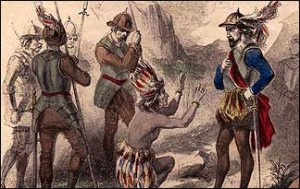
Readings:
- Frances R. Aparicio, “(Re)constructing Latinidad: The Challenge of Latina/o Studies,” in A Companion to Latina/o Studies, eds. Juan Flores and Renato Rosaldo (2007), pp. 39-48;
- “Latino History: An Interchange on Present Realities and Future Prospects, ”Journal of American History, 97:2 (September 2010);
- Vicki L. Ruiz, “Nuestra America: Latino History as United States History,” Journal of American History 93:3,(December 2006),pp. 655-672;
- Pablo Mitchell, “Playing the Pivot: Teaching Latina/o History in Good Times and Bad” and “Syllabus,” Journal of American History 93:4 (March 2007).
October 18, 2013 – Seminar 1
Conceptualizing Latino/a History and the Colonial Era with Virginia Sánchez Korrol, Pablo Mitchell and Andrés Reséndez
The first full-day seminar will offer an opening panel and participant discussion moderated by our lead faculty to introduce and explore the key themes for the program: colonialism, imperialism, citizenship, and immigration. An afternoon lecture will provide in-depth background on the origins of Hispanic peoples in the Americas, and a hands-on workshop on teaching with primary documents from this era. Administrators will participate in the panel and lecture and attend a separate administrators’ workshop in the afternoon.
Readings:
- Andrés Reséndez, A Land So Strange: The Epic Journey of Cabeza de Vaca (2009).
November 2013 – Online Discussion
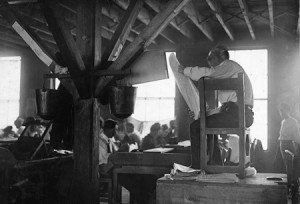
Readings:
- Samuel Truett, “Epics of Greater America: Herbert Eugene Bolton’s Quest for a Transnational American History,” in Interpreting Spanish Colonialism: Empires, Nations, and Legends, eds. Christopher Schmidt-Nowara and John M. Nieto-Phillips (2005), pp. 213-247;
- María E. Montoya, “Dividing the Land: The Taylor Ranch and the Case for Preserving the Limited Access Commons,” in Land in the American West: Private Claims and the Common Good, eds. William G. Robbins and James C. Foster (2000), pp. 121-144.
- Omar Valerio-Jiménez, “Neglected Citizens and Willing Traders: The Villas del Norte (Tamaulipas) in Mexico’s Northern Borderlands, 1749-1846,” Mexican Studies/Estudios Mexicanos 18:2 (2002);
- Raúl A. Ramos, “Finding the Balance: Bexar in Mexican/Indian Relations,” in Continental Crossroads: Remapping U.S.-Mexico Borderlands History, eds. Samuel Truett and Elliott Young (2004), pp. 35-65.
December 6, 2013 – Seminar 2
The Nineteenth and Early Twentieth Centuries with John Nieto-Phillips and Orlando Hernández
The second full-day seminar will focus on the themes of Americanization, citizenship, and images in popular culture in New Mexico and Puerto Rico, from1890s to1940s and the importance of José Martí, Eugenio María de Hostos, and Cuban and Puerto Rican communities and culture from 1848 to 1940. Activities will include a hands-on workshop on visual analysis of political cartoons exploring themes of community and national identity, immigrant relationships to homeland, and U.S. policies relevant to the Pan-Latino/a community.
Readings:
- John Nieto-Phillips, The Language of Blood: The Making of Spanish-American Identity in New Mexico, 1880s-1930s (2004);
- Virginia Sánchez Korrol, From Colonia to Community: The History of Puerto Ricans in New York City (1994/1983);
- Lisandro Pérez, “Cubans in Nineteenth-Century New York: A Story of Sugar, War, and Revolution.” in Nueva York, 1613-1945, edited by Edward J. Sullivan. (2010);
Suggested:
- Rodrigo Lazo, Writing to Cuba: Filibustering and Cuban Exiles in the United States (2005).
January 2014 – Online Discussion
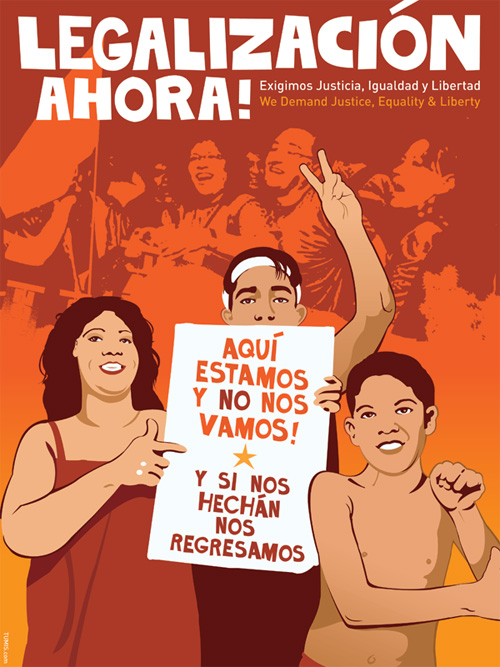
Readings:
- Zaragoza Vargas, Labor Rights are Civil Rights: Mexican American Workers in Twentieth-Century America (2005);
- Vicki Ruiz, “Coloring Class: Racial Constructions in Twentieth-Century Chicana/o Historiography,” in A Companion to Latina/o Studies, eds. Juan Flores and Renato Rosaldo (2007), pp. 169-179;
- Juan Flores, “Island and Enclaves: Caribbean Latinos in Historical Perspective,” in Latinos: Remaking America, eds. Marcelo M. Suárez-Orozco and Mariela M. Páez (2002), pp. 59-74.
February 7, 2014 – Seminar 3
Cuban and Dominican Immigration World War II to the Present with Lisandro Pérez and Ramona Hernández
The third full-day seminar will focus on the impact of Latino/a migrations to the U.S. in the late twentieth and early twenty-first centuries covering the specific migrations that affect our region as well as the related issues of labor, gender inequality, and cultural spillover. Small group discussions with the visiting scholars will explore effective approaches to teach diverse Latino/a cultures, politics, and immigration issues.
Readings:
- María Cristina Garcia, Seeking Refuge: Central American Migration to Mexico, the U.S., and Canada (2006);
- Albert M. Camarillo, “Cities of Color: The New Racial Frontier in California’s Minority-Majority Cities,” Pacific Historical Review 76:1 (February 2007), pp. 1-28;
- Luis Alvarez, “From Zoot Suits to Hip Hop: Towards a Relational Chicana/o Studies,” Latino Studies 5:1 (Spring 2007), pp. 53-75;
- Guillermo J. Grenier, and Lisandro Pérez, The Legacy of Exile: Cubans in the U.S. Chapters 4-9 (2003).
March 2014 – Online Discussion
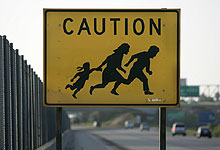
Readings:
- Arleen Davila, Barrio Dreams: Puerto Ricans, Latinos, and the Neoliberal City (2004);
- Jesse Hoffnung-Garskof, A Tale of Two Cities: Santo Domingo and New York After 1950 (2008);
- Robert Smith, Mexican New York: Transnational Lives of New Immigrants (2005);
- Marisela R. Chávez, “We have a long, beautiful history”: Chicana Feminist Trajectories and Legacies” in No Permanent Waves: Recasting U.S. Feminist History (2010), pp. 77-97.
April 25, 2014 – Seminar 4
Interpreting Latino/a History and Culture with María Montoya and Lori Flores
The fourth full-day seminar will feature presentations by María Montoya and Lori Flores in the morning and the afternoon workshops will focus on pedagogical approaches. In collaboration with lead faculty Professors Montoya and Perez, Dr. Pennee Bender and Donna Thompson Ray, ASHP/CML historians and educators, will design hands-on workshops that explore a range of teaching approaches that will focus on supporting student literacy skills. Participants will work with primary documents and secondary texts to structure and discuss appropriate supporting materials to assist students in understanding, analyzing, and interpreting issues in Latino/a history and culture. Community college faculty mentors will lead workshops that incorporate Latino/a history and culture content from earlier seminars in explorations of curriculum options. Amy Traver (QCC) will model her project working with immigrant organizations, Carlos Hernández (BMCC) will explore gaming options in Latino literature, and Megan Elias (QCC) will model and discuss strategies for writing intensive curriculum modules. Participants will test and analyze model lessons and modules utilizing one or more approaches and evaluate their applicability to their students. Administrators will participate in the morning workshops and attend a separate administrators’ program workshop in the afternoon.
October 24, 2014 – Seminar 5 and December 5, 2014 – Seminar 6
Latinos/as History and Culture across the Humanities Fields
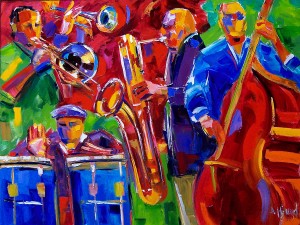
The fifth and sixth full-day seminars will help participants develop a curriculum or classroom module based on themes explored in previous seminars. These seminars will combine readings and lectures by Professors Montoya and Pérez with workshops that guide community college faculty in developing curricular modules with learning supports appropriate for community college students. Seminars will draw on ASHP/CML’s recent work focusing on literacy-building skills using history content to provide community college faculty with strategies for strengthening students’ academic reading and writing skills.
May 8, 2015 – Conference
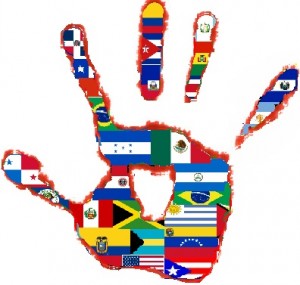
Bridging Historias will end with a one-day conference that will serve to coalesce and synthesize the entire project. The conference will be held at the CUNY Graduate Center, which is a leading venue for academic symposia and conferences in the city. The highly acclaimed Latino/a Studies scholar Vicki Ruiz (UC, Irvine) will be the keynote speaker addressing issues and approaches to teaching Latino/a history and culture. All participants, including administrators, will present their work at the conference.

Any views, findings, conclusions, or recommendations expressed here do not necessarily reflect those of the National Endowment for the Humanities.

